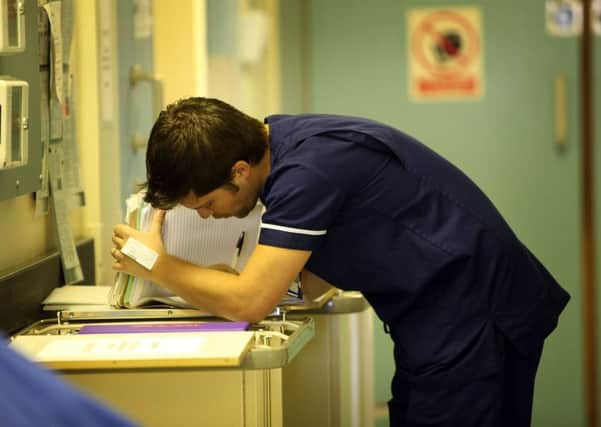Miles Briggs: Tackling male stereotypes can help the NHS


A time when, for so many young people, they do not know what they want to do with their lives or the career opportunities available to them.
But that is not what I want to look at today specifically.
The issue which is too often not challenged is the fact that for so many boys and young men the career options of great professions like nursing and teaching are closed due to the social training which we have all grown up with.
Advertisement
Hide AdAdvertisement
Hide AdRecently actor and comedian Robert Webb instigated a welcome and interesting debate on the gender conditioning of men in his new book How Not To Be A Boy.
Mr Webb should be praised for talking so frankly about his own upbringing and the issue of men’s mental health as well as instigating a much-needed discussion about the importance of young boys and men not bottling up our feelings.
The heartfelt book examines the deep social training around the issue of masculinity in the UK and the often absurd expectations boys and men are forced to live up to. I also think this is an issue which is important in terms of attracting more men into what have sadly and for too long been seen as the “female” professions.
Increasingly the benefits of male role models in the classroom are being recognised and valued.
My sisters often remind me about the time as a five-year-old when instead of playing with the Star Wars Millennium Falcon I’d been given for Christmas, my main love was my A La Carte Kitchen.
Maybe it is that 80s Bluebird toy classic which has driven the dominance of men in the TV chef world and the huge success and interest in programmes like The Great British Bake Off.
I have been thinking about the issue of mental health and preconceptions about gender for some time and I believe they are interlinked. Why is it that men in Scotland and in fact across Britain do not talk more about their mental health?
Last week the Scottish Parliament’s Health & Sport Committee heard about the need for more men to consider a career in nursing to meet the future workforce challenges our NHS faces.
Advertisement
Hide AdAdvertisement
Hide AdThe Nursing 2030 Vision acknowledged that there has been a decrease in the number of applications from men despite continuing work being undertaken by many universities and colleges to promote the positive image of men in nursing to both primary and secondary pupils.
It is welcome to see the Chief Nursing Officer in Scotland, Fiona McQueen, undertake a review into widening access to nursing and midwifery education and careers.
That review will bring together stakeholders to identify current barriers to the profession, and is expected to make recommendations this year to improve opportunities and encourage and nurture anyone who aspires to be a nurse irrespective of their background or sex.
So as a society and as parents and guardians, teachers and policy makers, we must all think about what sort of men we want young Scots boys to grow up and become. Not only will that be a valuable progression socially, it would also go some way to plugging gaps in the nursing workforce in the future.
We cannot afford to see the vacancy levels currently experienced in the NHS continuing – last month we learned that the number of gaps in nursing cover were at their highest ever.
This has come about through disastrous workforce planning by the SNP, which hasn’t taken into account an ageing population, and indeed an ageing workforce, a huge slice of whom are contemplating retirement.
The cost of this is a nursing workforce overstretched and stressed out, a growing dependency on expensive nursing bank staff, wards which often are struggling to function, and patients and taxpayers facing longer waiting times and increased costs to the NHS to receive the vital care they need and deserve.
Tackling this particular brand of gender stereotyping would go some way to addressing these problems.
Miles Briggs is Scottish Conservative shadow health secretary